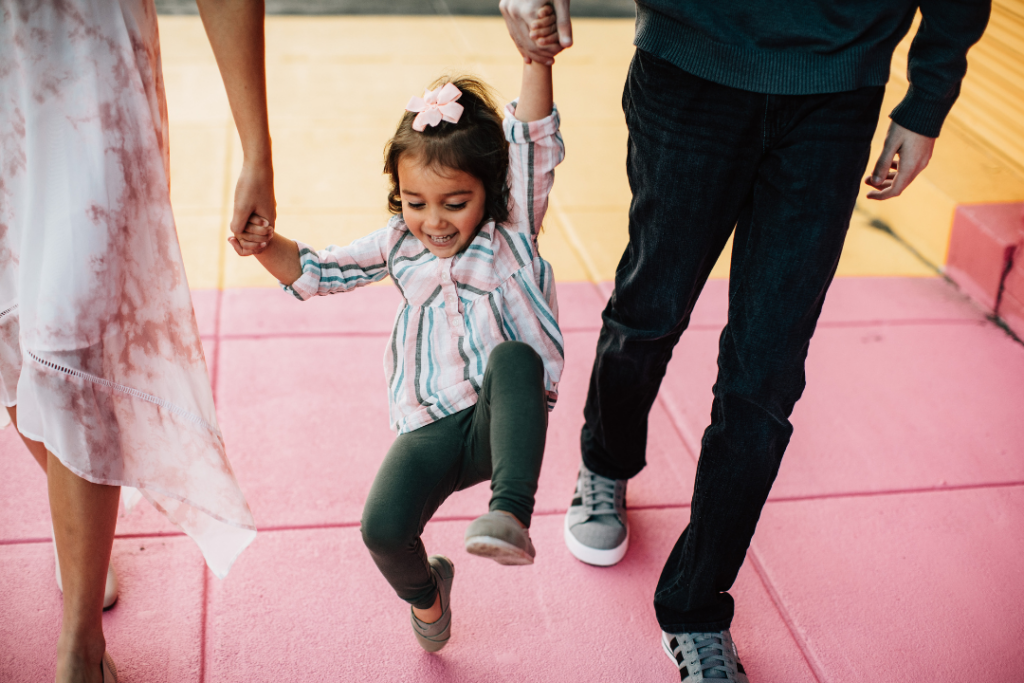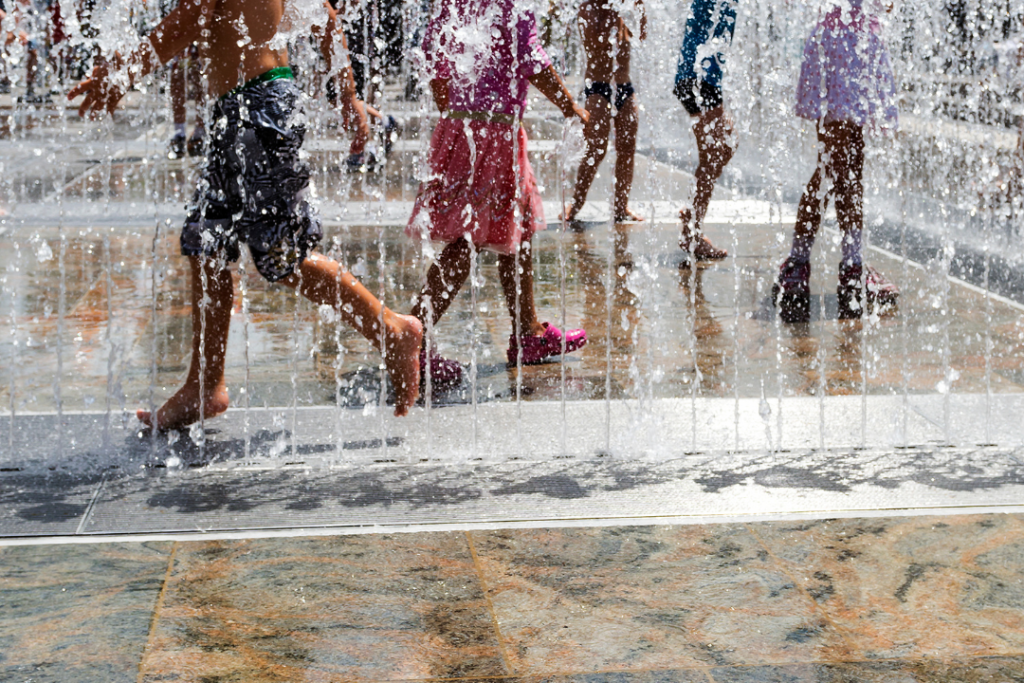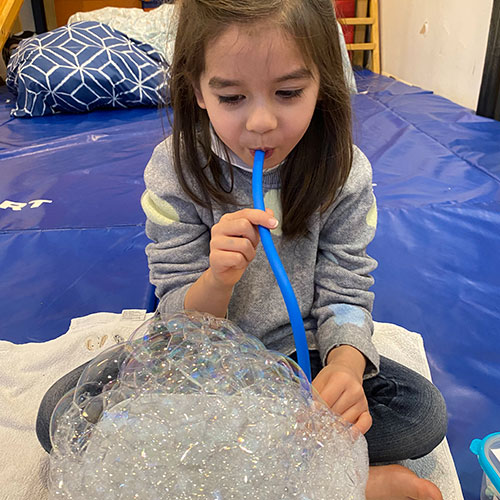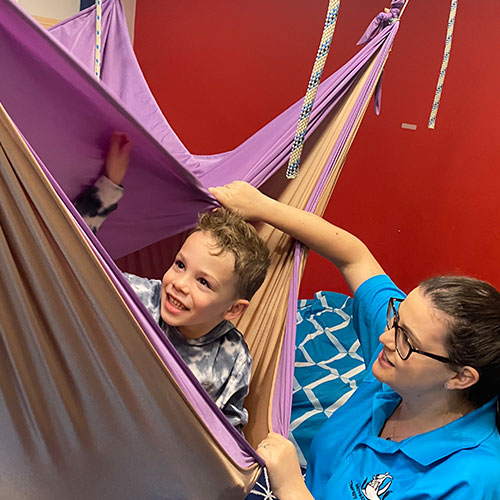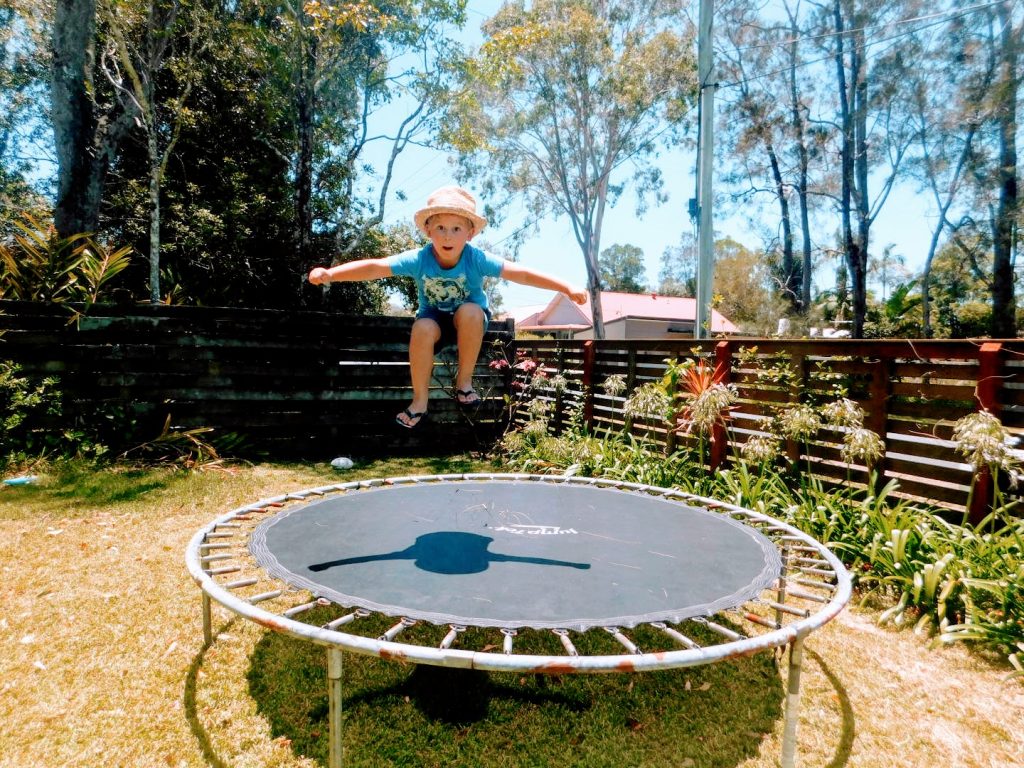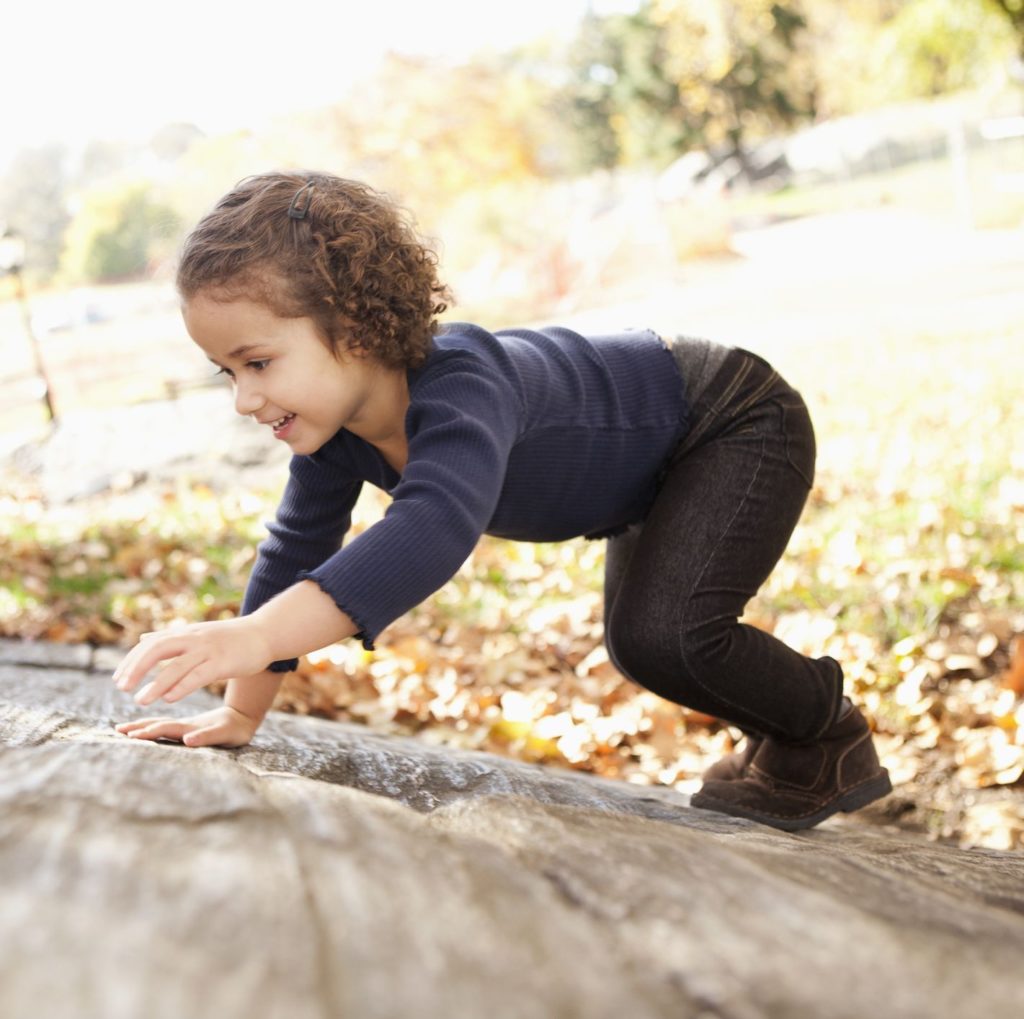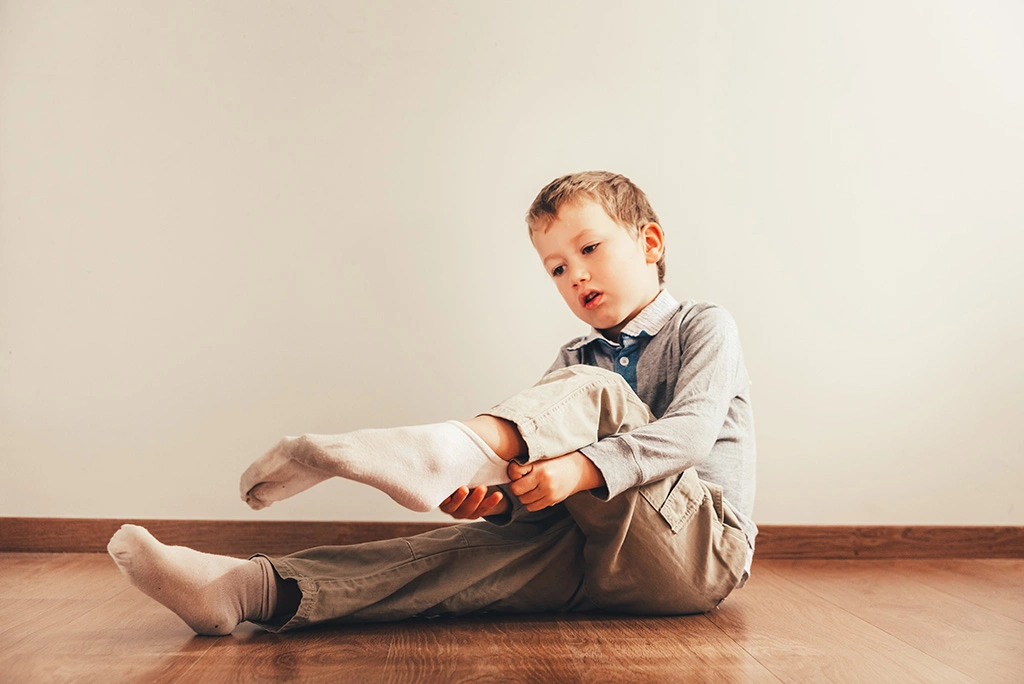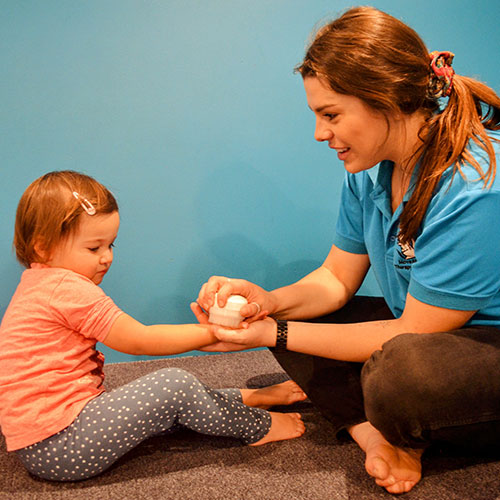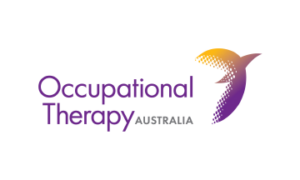Author: Maisie Thompson, Paediatric Occupational Therapist
4 min read
Play is a child’s primary occupation. It’s how they explore and learn about the world, understand cause and effect, and develop their sensory systems. Play-based therapy is a structured yet free and intentional approach used by occupational therapists to help children achieve therapeutic goals while building connection and engagement. At MoveAbout Therapy Services, play-based therapy is at the heart of our approach, supporting one of our core values: We are Playful. Every day, we create new and exciting activities to encourage growth and development through play.
What is Play-Based Therapy?
Play-based therapy is a child-centred approach where therapists use play to address physical, emotional, cognitive, and social challenges. By following the child’s lead, therapists create a joyful and safe space for growth through both structured and unstructured activities.
This method is particularly effective for children with neurodevelopmental diagnoses, as it meets them where they are developmentally while fostering active participation. Common techniques include:
- Role-playing
- Storytelling
- Creative visualisation
- Sensory-motor activities
- Imaginative play
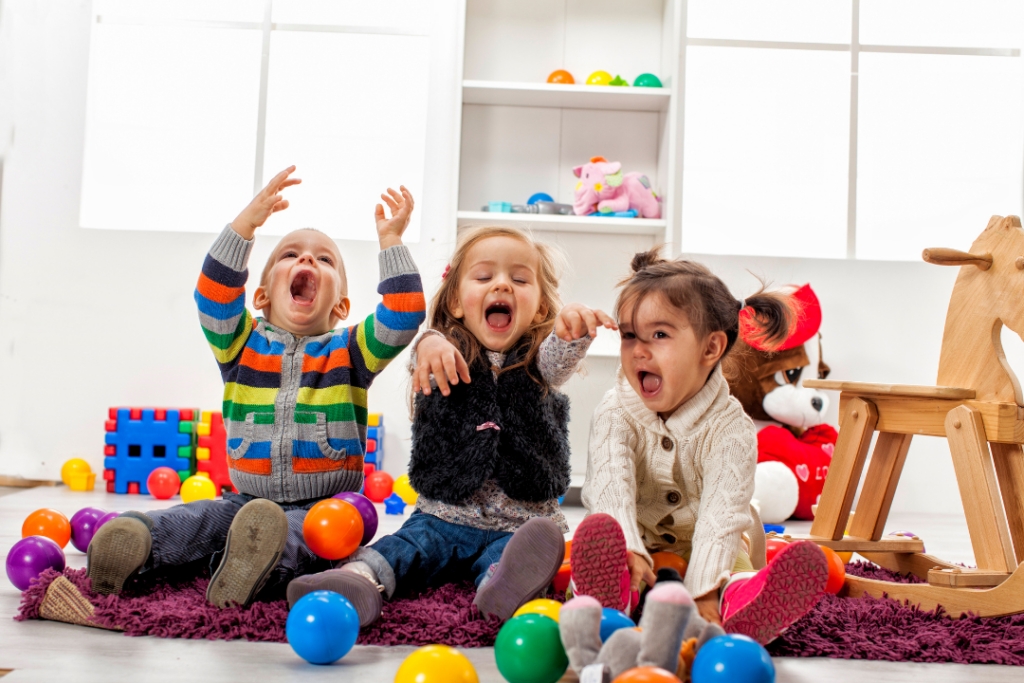
Why is Play-Based Therapy Important?
Play-based therapy has a profound impact on children of all ages. Here are six key reasons why it is vital:
- Engages the Child’s Interests
Play-based therapy captures a child’s curiosity, making therapy sessions engaging and enjoyable. Unlike more rigid approaches, play provides a natural and fun environment for learning and growth. - Supports Holistic Development
Play encourages simultaneous development of multiple skills. For instance, building a block tower enhances fine motor coordination, fosters social interaction when done with peers, and develops problem-solving skills. - Facilitates Communication
Play opens up opportunities for spontaneous communication, especially for children with speech or language challenges. Therapists can model language in real-time, helping children practice effectively. - Builds Social and Emotional Skills
Group play fosters skills like turn-taking, sharing, and social problem-solving. Pretend play, in particular, helps children process emotions and navigate real-life challenges in a safe, supportive context. - Promotes Self-Regulation
Play-based activities are ideal for developing self-control. For example, waiting their turn in a game or following rules helps children practice patience and manage their emotions. - Aligns with Developmental Stages
Play-based therapy is flexible, adapting to a child’s developmental stage and guiding them toward the next level of growth.
Applications in Occupational Therapy
Play-based therapy is a cornerstone of paediatric occupational therapy and is tailored to address diverse needs and goals. It supports children by:
- Enhancing communication skills
- Helping with sensory processing through exposure to various sensory inputs
- Encouraging fine and gross motor development
- Promoting emotional regulation and expression
- Strengthening connection and social engagement
- Achieving activities of daily living (ADLs)
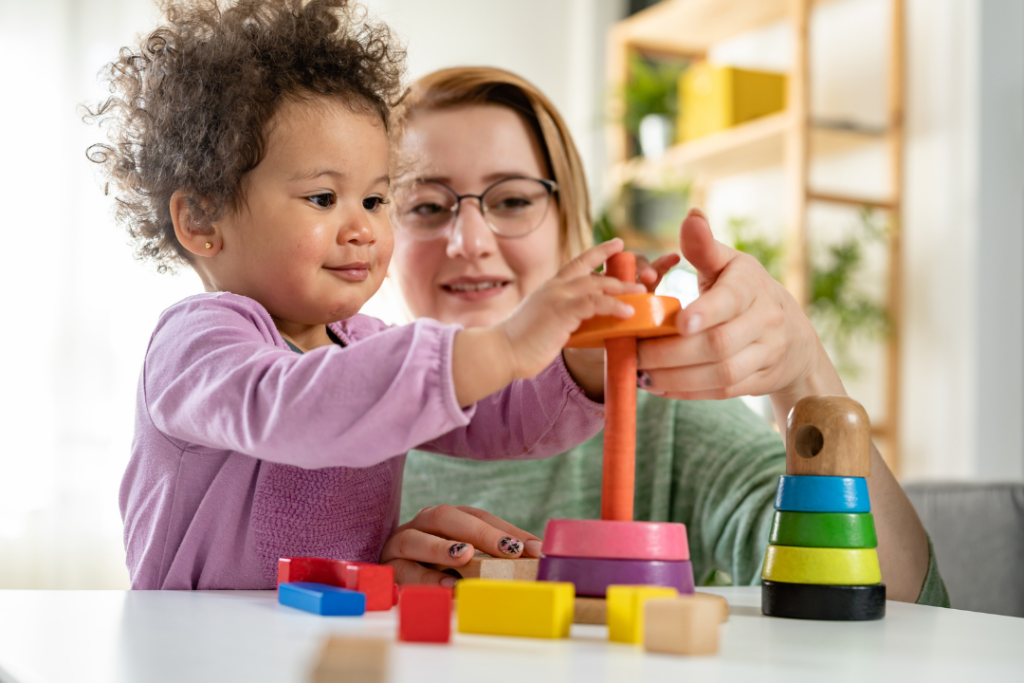
The Power of Play
Incorporating therapeutic goals into play transforms challenges into opportunities for growth. Play-based therapy empowers children to build resilience, independence, and self-regulation while fostering joyful connections with others.
Whether it’s engaging in pretend tea parties, messy sensory bins, or constructing the tallest tower imaginable, play-based therapy reminds us that meaningful progress often begins with the simple act of play.
If you feel like your child would benefit from play based therapies, talk to an occupational therapist for further guidance. Contact MoveAbout today. Check out our Facebook and Instagram pages for more education regarding toilet training, sensory processing, and regulation.
